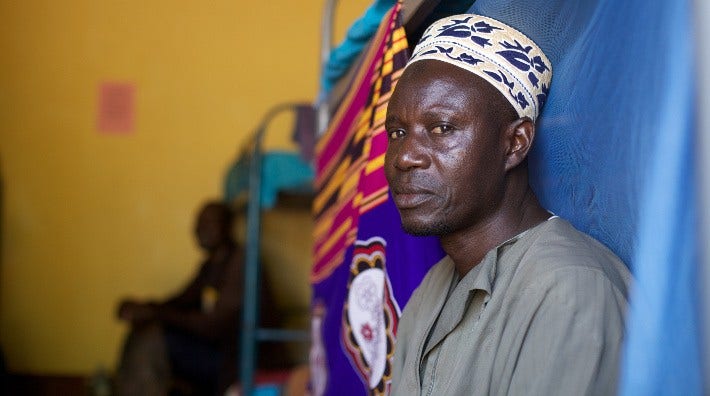Global Patient Support
We provide training and technical assistance resources, mentorship, and peer-to-peer learning opportunities to health facilities and cancer organizations primarily in low- and middle-income countries (LMICs) through our capacity development programs in patient navigation, patient and caregiver education, and organizational strengthening.

The American Cancer Society is a leader in efforts to bring patient navigation services to people with cancer, both domestically and globally. Patient navigators assist patients and their caregivers to access the resources they need to break down barriers to equitable cancer care in all settings. Globally, patient navigation is a key initiative to bridge the multiple gaps in fragmented health systems.
Globally, we are promoting patient navigation with a multi-pronged approach:
BEACON (Building Expertise, Advocacy and Capacity for Oncology Navigation) Initiative—our flagship patient navigation capacity development program now with 40+ partners in 25+ countries which includes a self-service Global Oncology Navigation Toolkit and virtual Community of Practice. To learn more about and gain access to these resources, visit the BEACON Initiative website.
SPARK (Supporting Patient Navigation Adoption, Replication and Knowledge Exchange) Initiative—our capacity and policy development program that fosters comprehensive and sustainable patient navigation systems starting with partners in Indonesia, Kenya, and Nigeria. The goal of SPARK is to ensure that patient navigation becomes an essential cancer care service and to serve as a model for other countries building their cancer care infrastructure.
The Global Alliance for Cancer Patient Navigation (the Alliance)—a collaborative effort to build an evidence base for sustainable patient navigation programs in diverse non-US settings. The Alliance brings together stakeholders from many countries in a coordinated and inclusive manner to frame, assess, and address challenges in global patient navigation that no single organization can solve alone. To learn more or join, please email us at acsglobal@cancer.org.
Providing patients and their caregivers with accurate and appropriate information about their diagnosis and treatment is a key factor in treatment completion that is often lacking in LMIC settings.
The EQUIPPED (Enabling Quality Interactions between Providers and Patients through Education Delivery) Initiative—our cancer education initiative addresses this gap by enabling health facilities and cancer organizations in LMICs and other relevant settings to equip and train their staff to provide high-quality cancer education to newly diagnosed patients and their caregivers. EQUIPPED provides educational resources that are people-centered, scientifically accurate, culturally and linguistically appropriate, and enhance patients’ understanding and decision-making around treatment.
EQUIPPED includes patient- and provider-facing cancer education materials in multiple languages that:
- Define what cancer is, including possible signs and symptoms
- Identify risk factors for cancer
- Describe different types of treatment and related side effects
- Promote pain control and timely treatment
- Break down the stigma and myths associated with cancer
- Explain how to take care of oneself on the treatment journey
These materials open new channels for communication and offer hope to families affected by cancer.

EQUIPPED also includes complementary training resources to develop patient-centered communication skills of health workers and health educators.
To learn more about and gain access to these resources, please visit the Overview of the ACS EQUIPPED Initiative for Global Patient and Caregiver Education.



